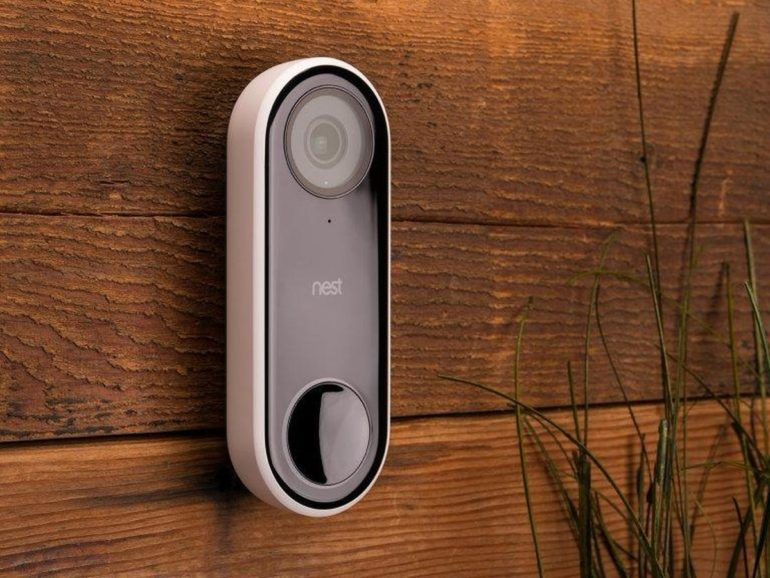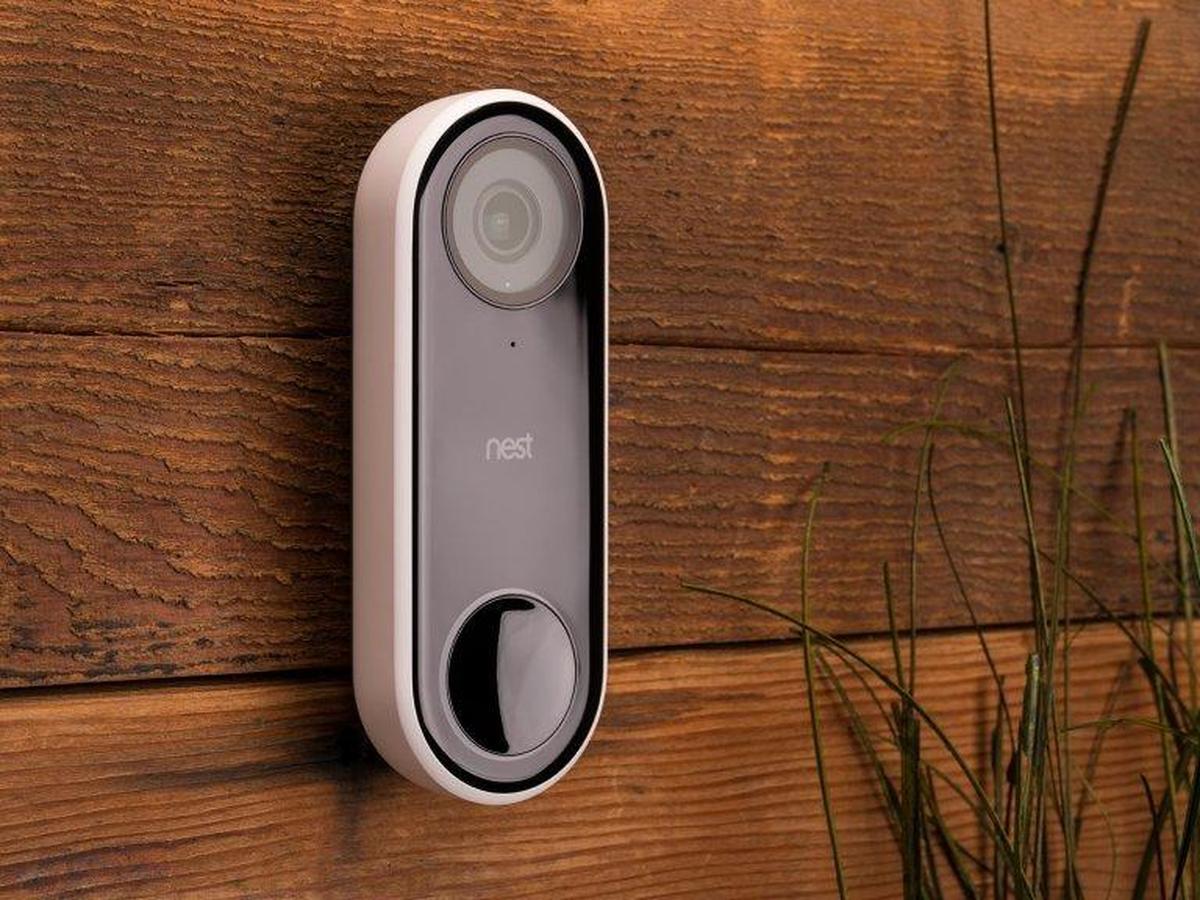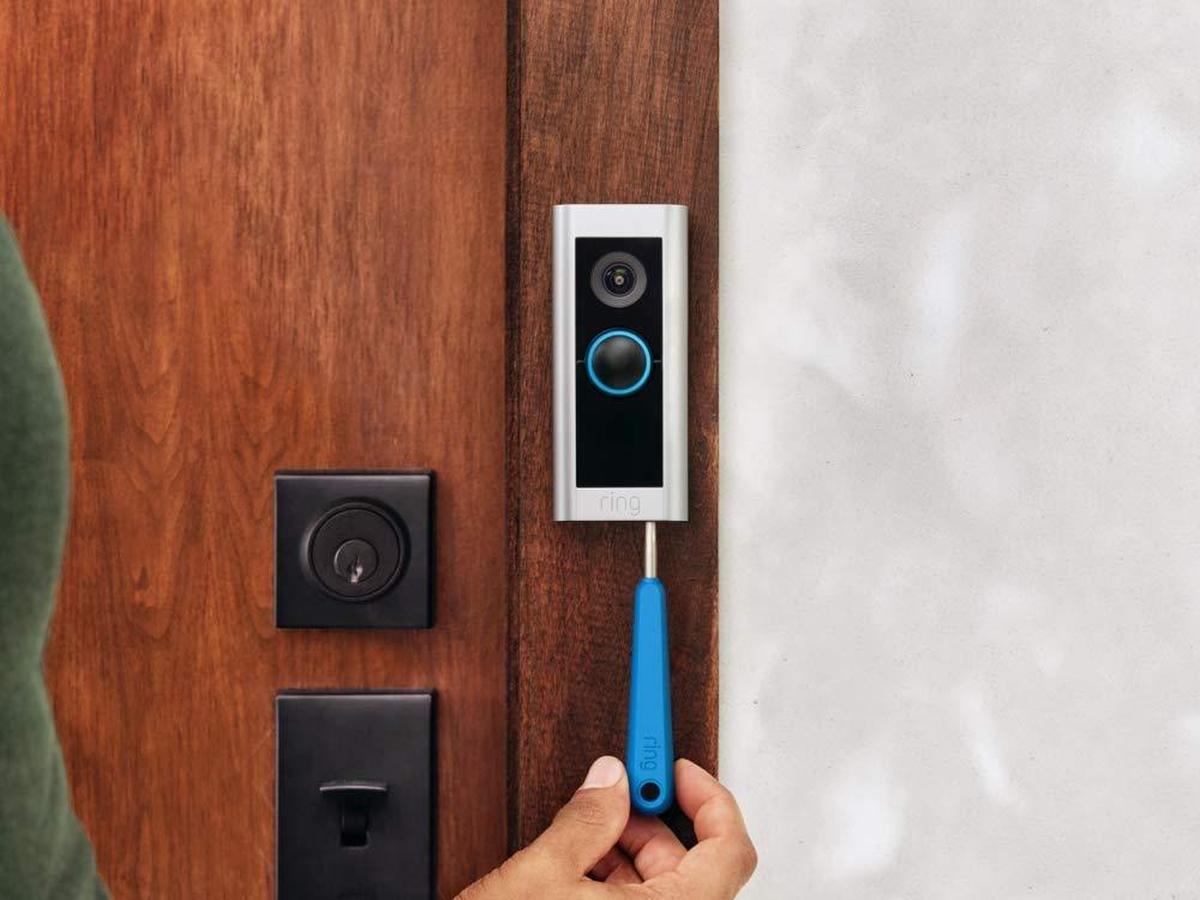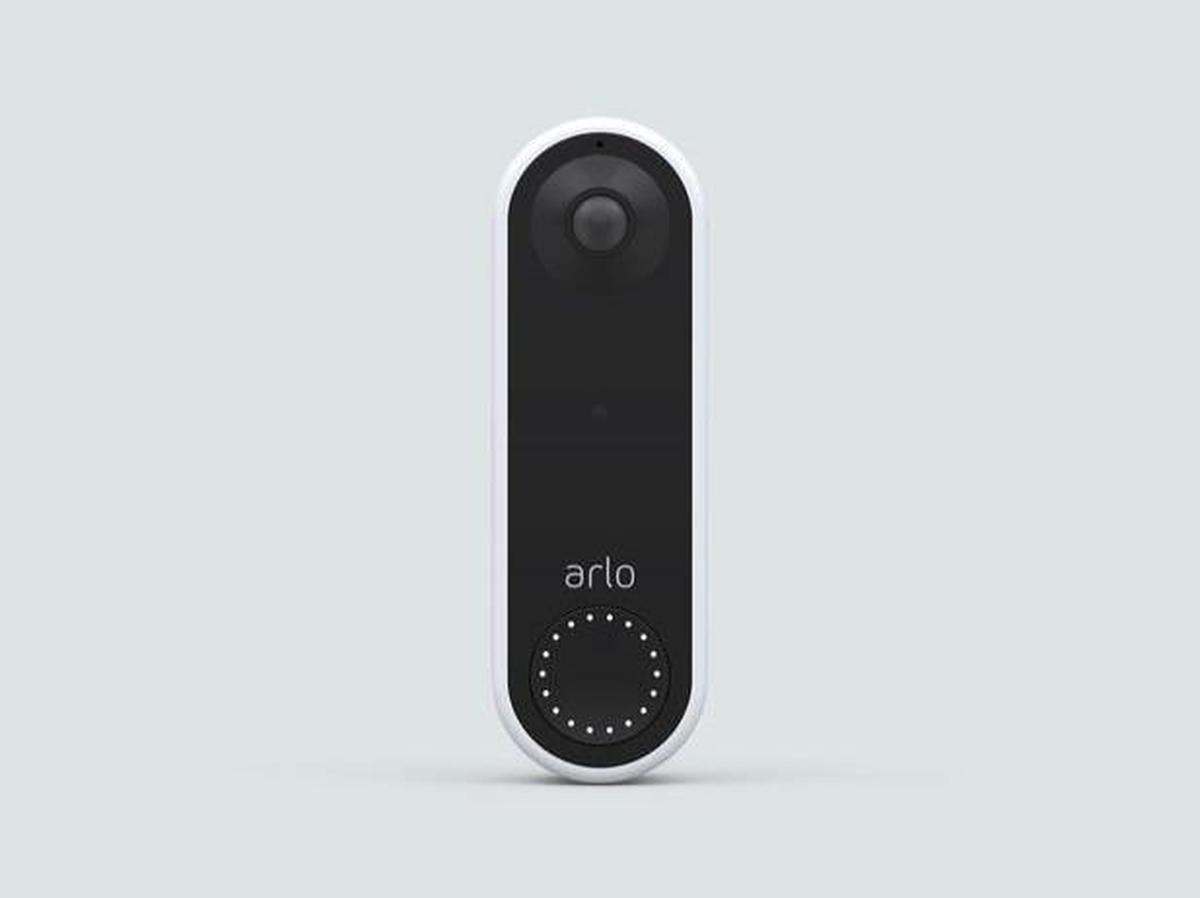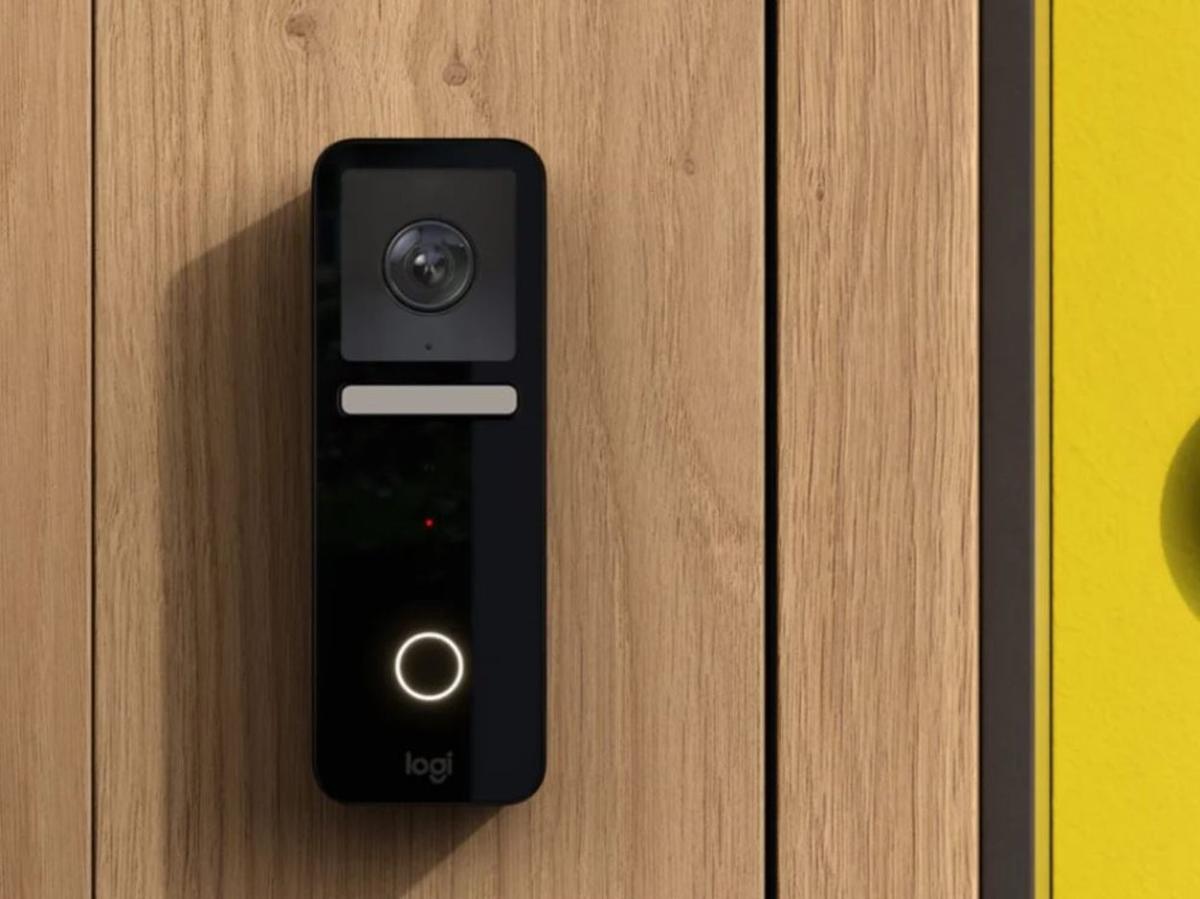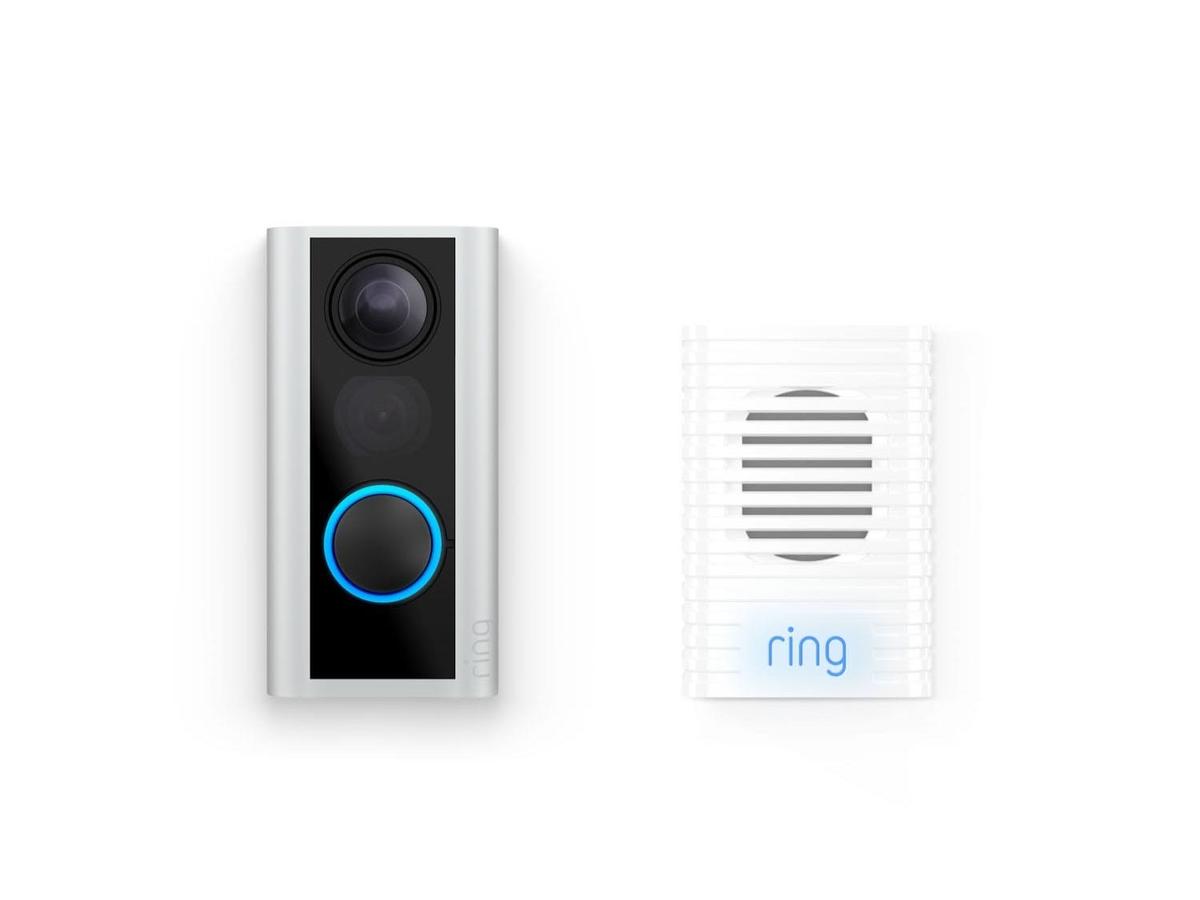The home security industry has been revolutionized with new technology, ranging from smart home sensors to smart locks to security video cameras. But one of the most subtle and effective security measures you can add to your home is a video camera doorbell.
These doorbells serve two purposes: they record footage of people who approach your front door, and they alert you with a pleasant chime or jingle when they’re pressed — just like a regular doorbell.
Although these devices can be very useful and increase your home’s security, it can be tough to determine which video doorbell you should pick. Luckily for you, we’ve put together a selection of the top video doorbells in 2021.
There are tons of top-tier video doorbells on the market, but these models caught our attention over their competitors.
Nest’s Hello video doorbell is one of the best overall. Not only will you enjoy a high-quality video resolution of 1600 x 1200p, but you’ll also be able to use facial recognition technology that can identify who’s knocking on your door before sending you a phone notification, perfect for improving peace of mind.
If you have Google Assistant, the Hello doorbell will even announce people as they approach so you’re never surprised by a sudden visitor. It’s a hardwired device and continuously records video. If you like to fiddle with settings, you’ll be able to set up specific recording zones so the camera isn’t constantly alerting you to blowing leaves or random animals. The Nest Aware service, which starts at $6 per month, is an optional subscription that adds even more value to your purchase.
For those interested in a doorbell camera that can give them a wider field-of-view, Ring’s Video Doorbell Pro 2 is a good pick (as are many of its other security products). It can work with the Amazon Alexa, IFTTT, and Google Home smart home networks.
More importantly, you’ll enjoy a field-of-view of 150 x 150 degrees. The camera’s square aspect ratio does a great job of showing almost all of even the largest front porches, preventing someone from hiding in the corner. Motion zones can be customized to prevent false alarms and video quality overall is as excellent as the field-of-view. However, this camera is wired, and there’s a required Ring Protect subscription ($30 per year) if you want to unlock most of the device’s features.
Resolution: 1536 x 1536 FOV: 180 degrees Wired or Battery: Wired Smart Home Compatibility: Amazon Alexa, Google Assistant
If you have several pets and want to keep an eye on them, Arlo’s Video doorbell could be a good choice. With fantastic audio and video quality, it’s a top-tier video doorbell option that works with both Google Assistant and Amazon Alexa, enabling you to receive audio notifications and live stream video footage.
It also includes motion sensitivity and optional video storage that requires an additional subscription fee. It’s a smart, advanced doorbell, and is capable of differentiating between people and animals and can alert you when a recognized person or pet comes to your door.
If your home uses Apple HomeKit devices, your options for a video doorbell are somewhat limited. Fortunately, the Logitech Circle View doorbell camera is an excellent pick, with a 3:4 aspect ratio that offers plenty of visibility for your front porch and works in conjunction with facial identification technology.
The setup process isn’t the easiest, but this doorbell camera provides secure cloud storage (albeit for an expensive fee) and a slim profile that makes it a great choice for homeowners that appreciate a modern, minimalist aesthetic.
Ring also makes the Peephole Cam, the best pick by far for those who don’t have traditional doorbells or live in apartment buildings. This video doorbell camera replaces a regular peephole and allows you to see through your door electronically. It’s incredibly easy to install and doesn’t damage the door, so it won’t compromise your security deposit.
This battery-operated device has to be charged once per month, but it’s well worth this minor inconvenience thanks to its good video quality, affordability, and Amazon Alexa integration capabilities. Unfortunately, it is not compatible with Google Assistant.
What should you look for in a video doorbell?
Although all video doorbells will transmit or record video and play a doorbell sound when rung, they can differ significantly across their other aspects. Here’s what we’d recommend you look for when choosing a video doorbell for your home.
Good resolution and field of view
You should strive to get a video doorbell camera with enough resolution for your needs. Video doorbell camera resolution can range from 480p to 1080p or even 4K resolution. While 4K resolution is not necessary for most people, 1080p can provide a crisp, clear picture and is the way to go if you don’t mind spending a little extra cash on your doorbell camera. In addition, detail and color will be more vibrant, and individuals will be easier to recognize with better video resolution.
Motion detection
You might also look into motion detection for your doorbell camera. Many doorbell cameras have motion sensors built-in by default, so they will alert you if someone is approaching or leaving your door. Motion detection features are best used if you want to monitor who comes to your home and when.
Night vision
Similarly, night vision functionality adds even more practical value to your video doorbell. Night vision cameras will continue to transmit and/or record video in black and white, and will allow you to clearly see who approaches your door even if there isn’t enough ambient light for color. This, in turn, can provide better security — for example, it may help you identify someone who attempts to break in while you are away on vacation.
Power source
Doorbell cameras are typically powered through one of two methods: hardwiring into existing wires with your regular doorbell, or battery packs. Battery-powered options are better if you don’t have a traditional doorbell installed in your home already. By contrast, hardwiring is more convenient and secure if you do have a traditional doorbell.
Smart home integration and cloud storage
Consider whether you want your video doorbell to connect with your smart home network, especially if you want to control it through voice commands. Smart home network integration is also excellent if you want to store video recordings in the cloud or on other non-SD card storage devices.
Through smart home integration, you’ll gain greater control over your video doorbell, including its extra features, such as permissions, face recognition, and more.
Cloud storage is also important to consider. Most doorbell video cameras have optional cloud storage subscription services. These require a monthly or annual fee, but mean you never have to worry about switching out microSD cards.
Features
Before buying a video doorbell, investigate all the advertised features that it provides, such as two-way audio so you can talk to whoever is on the other side of your door without opening the door, or facial recognition technology. Most video doorbell owners will at least want the ability to set recognition zones, preventing false alarms from sending push notifications to their phones all day when leaves blow by.
Can you install a video doorbell by yourself?
Sometimes. Most DIY video doorbells use battery packs and don’t require you to mess with any wires to install them fully. However, doorbell cameras that do integrate with existing doorbells on your door may require an expert technician for safe installation. Fortunately, most video doorbells that require this include installation fees as a part of your initial purchase price.
What’s the difference between local storage and cloud storage for video doorbells?
Depending on the video doorbell you choose, it will either use local storage or cloud storage.
With local storage, your doorbell camera will only record and store a set amount of footage using hardware like a microSD card. MicroSD cards can accommodate between 16 and 128 GB. If you want to keep recording people at your front door, you’ll need to switch the cards out from time to time or erase the data on them before replacement.
Cloud-based storage is more advanced and theoretically allows for endless recording. This method only works with doorbell cameras that can connect to a smart home or Wi-Fi network. But keep in mind that cloud-based storage doorbell video cameras usually incur a monthly fee to pay for the storage space.
How did we select these video doorbells?
Top-tier video doorbells prioritize features and functionality above other aspects, like price. For this reason, we selected video doorbells with a variety of excellent attributes and perks, like high resolution, facial identification, Wi-Fi connectivity, and footage transmitting to the cloud or other storage solutions.
We also specifically looked for doorbells that would be manageable to install, even if you don’t have a lot of handyman skills. With luck, one of the above video doorbell choices will be a perfect fit for your home.
